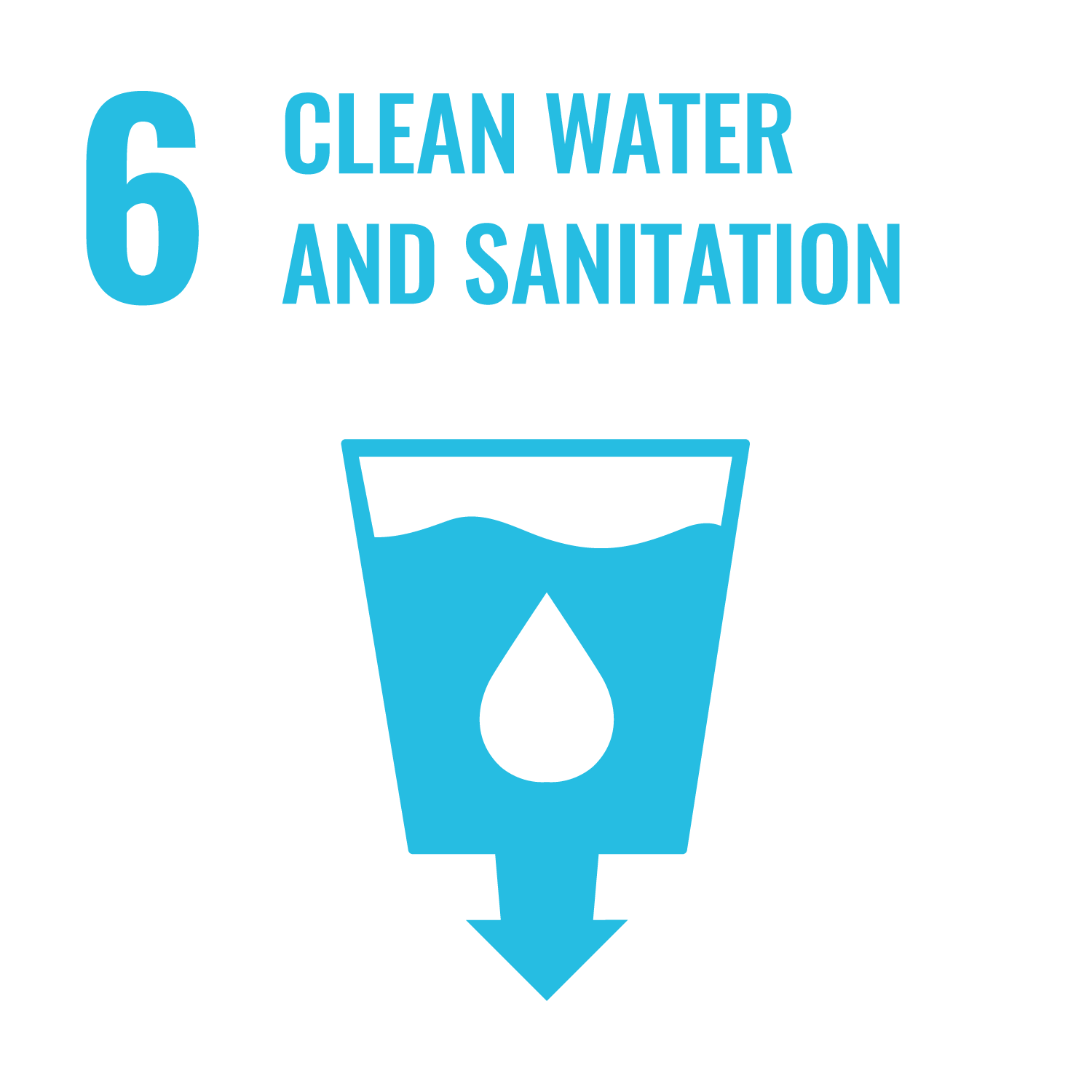- Home
- 6. Clean Water and Sanitation
 Goal 6. Clean Water and Sanitation
Goal 6. Clean Water and Sanitation
Water Usage & Care
6.3 Water Usage & Care
AASTMT satisfies the detailed indication material from 6.3.1 to 6.3.5 which consists of three components: water safety, water source conservation, and wastewater treatment.
1. Water Safety: As the primary source of campus water, tap water that satisfies national drinking water quality standards is used on all campuses whose quality is determined by government water purification plants. Water safety is ensured through regular inspections, management, maintenance, and cleaning of water storage towers, pipelines, drinking water equipment, as well as regular water quality testing. Besides, ground water is extracted and is used for irrigation purposes. Almost 55% of water used for irrigation comes from water sourced on AASTMT’s own land. Free drinking water is available in dorms for students.
2. Water Conservation: AASTMT is concerned with the issues of water conservation (including reuse) and the reduction of water waste. For this reason, it adopts a water conservation program and policy in all campuses such as the reduction of water usage for sprinkler irrigation is reached. Water consumption is reduced by the installation of water-saving faucets, flushing toilet seats, and technological non-flushing urinals. New buildings on campus are more in line with the concept of green buildings, as well as cut back on water use in some services such as car washing to save water.
3. Wastewater Treatment: Domestic sewage from the AASTMT campuses use the public sewage treatment facility through the sewage sewer and is released after it satisfies the regulations for release laboratory waste liquid is collected by temporary storage on campus and scheduled on a regular basis each semester. The Environmental Protection Agency's certified manufacturers transport and handle wastewater appropriately. AASTMT outsources professional companies that collect regularly wastes and dispose them in appropriate landfills.
6.3.1 Wastewater treatment A process in place to treat wastewater
Water is being treated form the City Treatment Services and Environmental Protection Agency's certified manufacturers transport and handle wastes appropriately. In addition, AAST is taking positive steps towards wastewater management & adopts a waste management policy.
6.3.2 Preventing water system pollution: Processes to prevent polluted water entering the water system, including pollution caused by accidents and incidents at the university.
There is a freshwater network that is controlled and completely isolated from any source of external pollutants. The AASTMT applies a "Waste Management Policy" for waste minimization, disposal and management. AASTMT have a contract with Nahdet Misr for Modern Environmental services for lifting, transporting and treating hazardous wastes. Besides, AASTMT applys ISO 140001 for waste management and pollution prevention as well as meeting international Environmental Management System standards. AASTMT outsources professional companies that collect regularly wastes and dispose them in appropriate landfills
AAST Recycling policy AASTMT Recycling Policy.pdf Life Policy Prosperous life Policy SDGs 1-2-3.pdf Medical/ Toxic waste disposal contract Waste Disposal Nahdet Masr Contract.pdf Waste Disposal Companies Environmental ISO-140001.pdf
6.3.3 Free drinking water provided: Provide free drinking water for students, staff and visitors (e.g. drinking water fountains).
There are free drinking fountains provided in all buildings and dormitories for use by faculty, staff, students, and guests. To ensure the safety of drinking water, fountains are routinely serviced, filters are updated, and water quality is analyzed.
Building Standards & Free water building standards and free water.pdf
6.3.4 Water-conscious building standards: Apply building standards to minimise water use
All campuses are equipped with faucets and toilet flushing equipment. When repairing or replacing equipment, it must be compliant with water-saving labels. The AASTMT is keen to apply international standards in building standards to minimize water use as well as initiatives for lower water consumption
| Environmentally Friendly Standards | Environmental Laboratory.pdf |
6.3.5 Water-conscious planting: Plant landscapes to minimize water usage. (e.g. use drought-tolerant plants)
AASTMT uses an automated irrigation system that operates automatically as well as water spraying system for fields. AASTMT relies on underground water from 13 borehole ground wells at the Abu-Qir Campus for irrigation and drinking. Water is regularly monitored and treated.
| Water Consumption Data | consumption data.pdf |
| Environmentally friendly standards | Environmental Laboratory.pdf |

